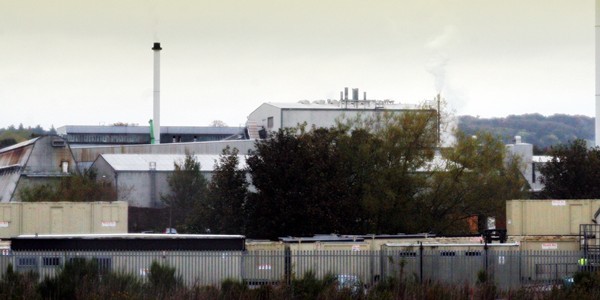Proposed changes to waste laws could force up charges at Dundee’s incinerator, its operator has warned.
Dundee Energy Recycling Ltd (DERL) burns tens of thousands of tonnes of rubbish every year at its Baldovie plant, generating electricity in the process, but the company is worried the Scottish Government’s zero waste plan could hamper its operations.
Ministers have been consulting on proposals to introduce progressive bans on the types of rubbish that can be dumped in landfill sites, which is expected to lead to separate collection and treatment of a range of material.
As part of this process, regulations will be introduced to ensure that energy-from-waste (EfW) plants such as DERL are “only used to recover value resources that cannot offer greater environmental and economic benefits through reuse and recycling.”
The government said separate collections would maximise the amount of high-quality material available for reprocessing.
It added, “Not all recyclable waste is segregated at source and in some cases it will end up in the unsorted waste stream.
“To ensure waste materials which could have been reused or recycled are not incinerated, EfW inputs will be restricted, through the environmental permit, to residual waste and other suitable single-stream wastes such as contaminated wood.
“This restriction means that unsorted waste will not be able to go directly for EfW without first being pre-treated.
“This provides a second opportunity to remove recyclate missed at the source segregation stage and ensure that Scotland does not simply move from mass landfill to mass incineration.”‘Dramatic impact’Ian Soutar of DERL said this could have a “dramatic impact” on the incinerator’s environmental and financial performance.
He said, “The Scottish Government appears to be making the assumption that residual waste containing only trace levels of the materials listed for segregation would be suitable for processing in existing EfW plants.
“Significant investment may be required to facilitate this change in feedstock.
“Although reducing levels of textiles, glass, metals and other non-combustible materials will help some processes within an EfW plant, increasing the concentration of, for example, plastic films will make emission control more difficult.
“Altering the feedstock to an existing EfW plant is not without problems. Food waste forms a significant part of the waste stream currently processed through DERL.”
Mr Soutar said a requirement on householders or waste suppliers to sort rubbish into types would reduce the volume and the energy value of the rubbish offered for disposal.
“This in turn will make EfW plants less efficient and restrict the capacity of the plant,” he said.
“Gate fees will increase in an attempt to keep such plants economically viable, placing an increased financial burden on the collection authorities.”‘Very severe’ consequencesHe added, “Any existing plant will likely have existing long-term contracts with waste suppliers.
“These contracts should be allowed to continue without change to protect both parties and the ratepayers from significant financial impact.
“Any alterations made to the operating terms and conditions for existing plants will likely have implications for the terms of the Scottish Environment Protection Agency permit currently in place, and indeed make existing plants unviable.
“Hence, DERL believes that the Scottish Government should give some consideration to the legal implications of enforcing changes to contracts and permits already in place and the likely very severe financial consequences.”
Dundee City Council gave DERL a £1 million loan in December. The council owns the incinerator and leases it to the company for an annual fee last year a report by Audit Scotland said it was losing £500,000 a year.
The council has defended its use of the incinerator, saying it would cost far more to landfill the city’s rubbish than burn it.
